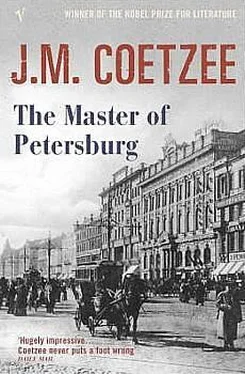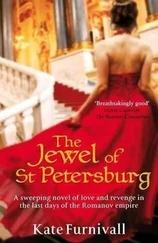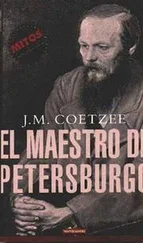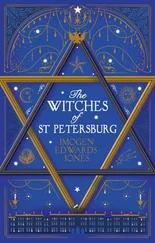'What -?'
'Hear me out. There are enough children in the cellars of Petersburg, and enough gentlemen on the streets with money in their pockets and a taste for young flesh, to bring prosperity to all the poor folk of the city. All that is required is a cool head. On the backs of their children the cellar-folk could be raised into the light of day'
'What is the point of this depraved parable?'
'I don't speak in parables. Like you, I am outraged by the suffering of innocents. I do not mistake you, Sergei Gennadevich. For a long while I was not prepared to believe that my son could have been a follower of yours. Now I begin to understand what he saw in you. You were born with the spirit of justice in you, and it is not yet stifled. I am sure that if this child, this little girl here, were to be enticed into an alley by one of our Petersburg libertines, and if you were to come upon them – if you had been keeping a guardian eye on her, for instance -you would not hesitate to plunge a knife into the man's back to save her. Or, if it is too late to save her, at least to revenge her.
'This is not a parable: it is a story about children and their uses. With the aid of a child the streets of Petersburg could be rid of a bloodsucker, perhaps even a bloodsucking banker. And in due course the dead man's wife and children might be turned out on the streets too, thus bringing about a further measure of levelling.'
'You swine!'
'No, you misplace me in the story. I am not the swine, I am not the man who is stuck like a swine in the alley. I say again: not a parable but a story. Stories can be about other people: you are not obliged to find a place for yourself in them. But if the spirit of justice does not permit you to ignore the suffering of innocent children, even in stories, there are many other ways of punishing the spiders who prey upon them. One does not have to be a child, for instance, to lead a man into a dark alley. One need only shave off one's beard and powder one's face and put on a dress and be careful to hug the shadows.'
Now Nechaev smiles, or rather bares his teeth. 'This is all out of one of your books! It is all part of your perverse make-believe!'
'Perhaps. But I still have a question to ask. If you are free today to dress up and be whom you wish and follow the promptings of the spirit of justice (a spirit still, I believe, resident in your heart), what will be the state of affairs tomorrow, once the tempest of the people's vengeance has done its work and everyone has been levelled? Will you still be free to be whom you wish? Will each of us be free to be whom we wish, at last?'
'There will be no more need for that.'
'No need for dressing up? Not even on carnival days?'
'This is a stupid conversation. There will be no need for carnival days.'
'No carnival days? No holidays?'
'There will be days of recreation. People will have a choice of resting or going into the country to help with the harvest.'
'Yes, I have heard of harvest days. No doubt we will sing while we work. But I return to my question. What of me, what of my place in your Utopia? Shall I still be allowed to dress up like a woman, if the spirit takes me, or like a young dandy in a white suit, or will I be allowed only one name, one address, one age, one parentage?'
'That is not for me to say. The people will give you their answer. The people will tell you what you are allowed.'
'But what do you say, Sergei Gennadevich? For if you are not one of the people, who are you and what future do you have? Shall I still have the freedom to pass myself off as whomever I wish – as a young man, for instance, who spends his idle hours dictating lists of people he doesn't like and inventing bloodthirsty punishments for them, or as the storekeeper whose job it is to order sawdust for the basket under the guillotine? Shall I be as free as that? Or should I bear in mind what I heard you say in Geneva: that we have had enough Copernicuses, that if another Copernicus were to arise he should have his eyes gouged out?'
'You are raving. You are not Copernicus.'
'You are right, I am not Copernicus. When I look up into the heavens I see only the stars that watched over us when we were born and will watch over us when we die, no matter how we disguise ourselves, no matter how deep the cellars in which we hide.'
'I am not hiding, I have simply merged with the invisible people of this city and with the conditions that produced me. Except that you cannot see those conditions.'
'May I be frank? You are speaking nonsense. I may not see lines and numbers in the sky, but I am not blind.'
'None so blind as he who will not see! You see children starving in a cellar; you refuse to see what determines the conditions of those children's lives. How can you call that seeing? But of course, you and the people who pay you have a stake in starving, hollow-eyed children. That is what you and they like to read about: soulful, hollow-eyed children with piping little voices. Well, let me tell you the truth about hunger. When they look at you, do you know what these hollow-eyed children see? Ask them! I'll tell you. They see fat cheeks and a juicy tongue. These innocents would fall upon you like rats and chew you up if they did not know you were strong enough to beat them off. But you prefer not to recognize that. You prefer to see three little angels on a brief visit to earth.
'The more I talk to you, Fyodor Mikhailovich, the less I understand how you could have written about Raskolnikov. Raskolnikov was at least alive, until he came down with the fever or whatever it was. Do you know how you strike me now? As an old, blinkered horse going round and round in a circle, rolling out the same old story day after day. What right have you to talk to me about dressing up? You couldn't dress up to save your life. You are nothing but a dry old man, a dry old workhorse near the end of its life. Isn't it time you tried to share the existence of the oppressed instead of sitting at home and writing about them and counting your money? But I see you are beginning to fidget. I suppose you want to hurry home and get this cellar and these children down in a notebook before the memory fades. You sicken me!'
He pauses, comes closer, peers. 'Do I go too far, Fyodor Mikhailovich?' he continues more softly. 'Am I overstepping the bounds of decency, uncovering what should not be uncovered – that we have seen through you, all of us, your stepson too? Why so silent? Has the knife come too close to the bone?' He brings the scarf out of his pocket. 'Shall we put on the blindfold again?'
Close to the bone? Yes, perhaps. Not the accusation itself but the voice he hears behind it: Pavel's. Pavel complaining to his friend, and his friend storing up the words like poison.
Dispiritedly he pushes the scarf aside. 'Why are you trying to provoke me?' he says. 'You didn't bring me here to show me your press, or to show me starving children. Those are just pretexts. What do you really want from me? Do you want to put me in such a rage that I will stamp off and betray you to the police? Why haven't you quit Petersburg? Instead of making your escape like a sensible person, you behave like Jesus outside Jerusalem, waiting for the arrival of an ass to carry you into the hands of your persecutors. Are you hoping I will play the part of the ass? You fancy yourself the prince in hiding, the prince and the martyr, waiting to be called. You want to steal Easter from Jesus. This is the second time you tempt me, and I am not tempted.'
'Stop changing the subject! We are talking about Russia, not about Jesus. And stop trying to put the blame on me. If you betray me it will only be because you hate me.'
'I don't hate you. I have no cause.'
'Yes you do! You want to strike back at me because I open people's eyes to what you are really like, you and your generation.'
Читать дальше












